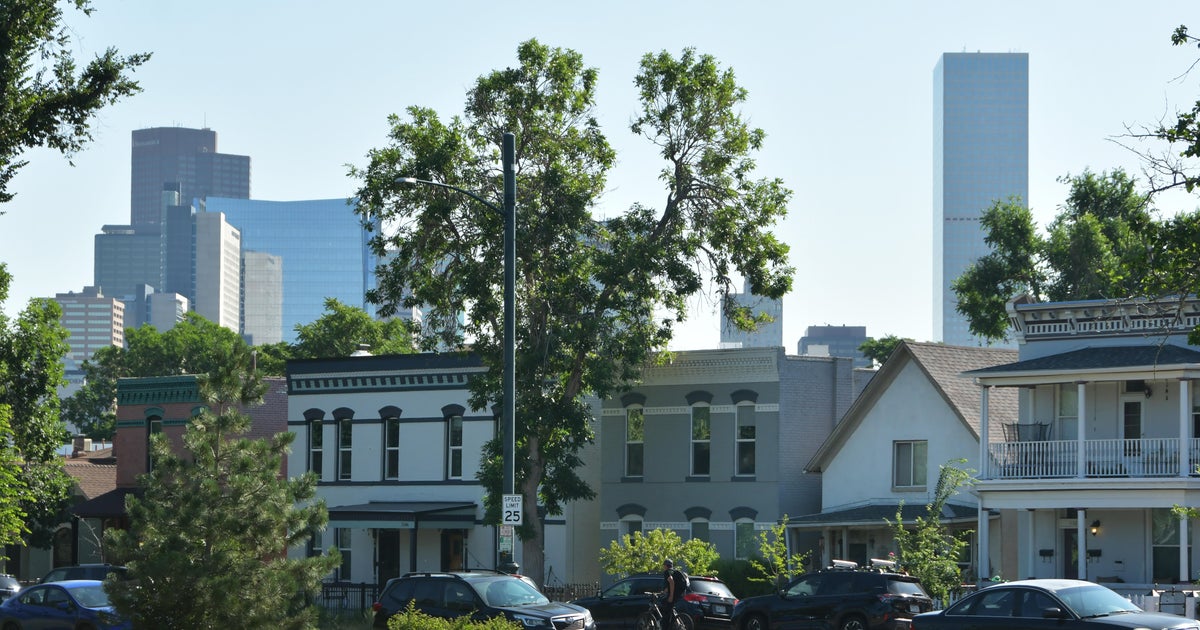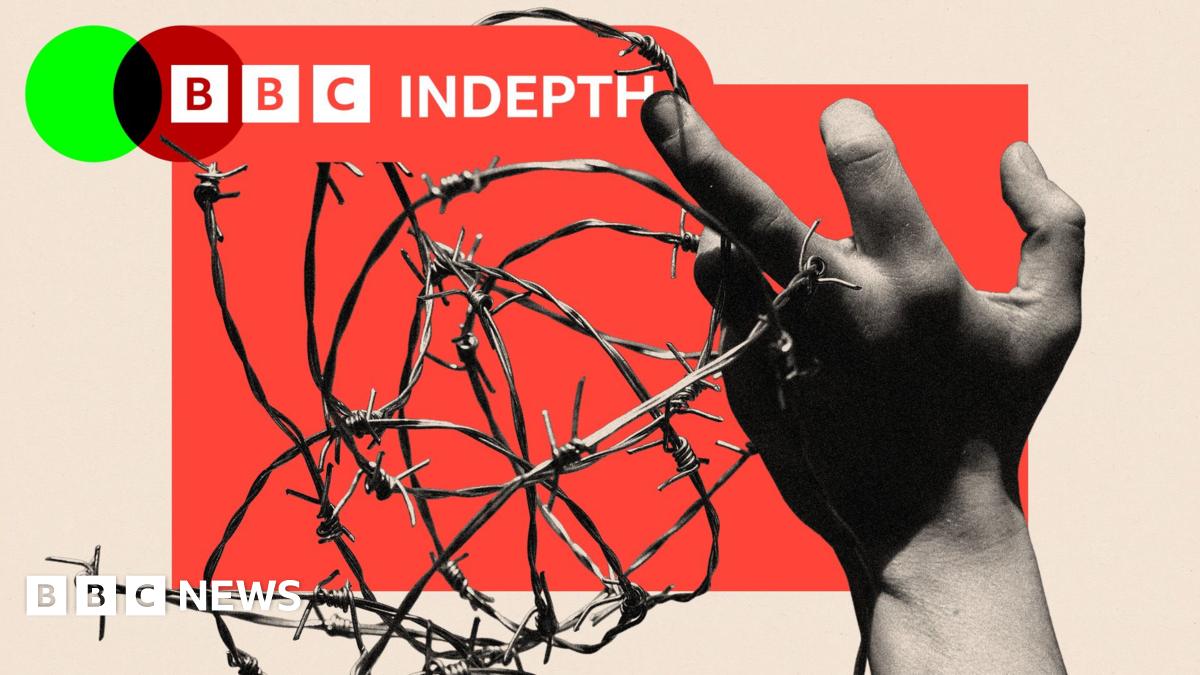Denver's Affordable Housing Struggle: Could A "Ghost Tax" On Landlords Be The Answer?

Welcome to your ultimate source for breaking news, trending updates, and in-depth stories from around the world. Whether it's politics, technology, entertainment, sports, or lifestyle, we bring you real-time updates that keep you informed and ahead of the curve.
Our team works tirelessly to ensure you never miss a moment. From the latest developments in global events to the most talked-about topics on social media, our news platform is designed to deliver accurate and timely information, all in one place.
Stay in the know and join thousands of readers who trust us for reliable, up-to-date content. Explore our expertly curated articles and dive deeper into the stories that matter to you. Visit Best Website now and be part of the conversation. Don't miss out on the headlines that shape our world!
Table of Contents
Denver's Affordable Housing Crisis: Could a "Ghost Tax" on Vacant Properties Be the Solution?
Denver, a city known for its stunning mountain views and vibrant culture, is grappling with a severe affordable housing crisis. Soaring rents and a lack of available units are pushing many residents, particularly low- and moderate-income families, to the brink. One controversial proposal gaining traction: a "ghost tax" on vacant or underutilized properties. But is this the answer to Denver's complex housing woes?
The reality is stark. Denver's population is booming, fueled by job growth and a desirable lifestyle. This influx of residents has significantly outpaced the construction of affordable housing, driving up rental costs and creating a competitive market that leaves many behind. Families are forced to choose between exorbitant rents and lengthy commutes, while individuals struggle to find safe and affordable places to live. This isn't just a problem for the individuals affected; it's a threat to Denver's economic vitality and social fabric.
The "Ghost Tax" Proposal: A Closer Look
The proposed "ghost tax," also known as a vacant property tax, targets properties that remain unoccupied or are significantly underutilized. The idea is to incentivize owners to either rent out their properties or develop them, thereby increasing the housing supply. Proponents argue that this measure could generate revenue for affordable housing initiatives while simultaneously addressing the shortage of available units. Similar taxes have been implemented in other cities, with varying degrees of success. For example, [link to article about a successful vacant property tax in another city].
However, the proposal is far from without its critics. Concerns include:
- Defining "Vacant": Establishing clear criteria for what constitutes a vacant or underutilized property is crucial to avoid unintended consequences and potential legal challenges. What about properties undergoing renovations? Seasonal rentals? The definition needs to be precise and equitable.
- Impact on Property Owners: Opponents argue that such a tax could unfairly penalize property owners who may have legitimate reasons for keeping their properties vacant, such as waiting for a favorable market or undergoing extensive repairs.
- Administrative Costs: Implementing and enforcing a new tax requires significant administrative resources, which could offset any revenue generated.
Alternative Solutions to Denver's Housing Crisis
While a "ghost tax" presents a potential solution, it's not a silver bullet. A multifaceted approach is necessary to effectively address Denver's affordable housing crisis. This includes:
- Increased Density: Allowing for more diverse housing options, including multi-family dwellings and accessory dwelling units (ADUs), can increase the overall housing stock.
- Streamlined Zoning Regulations: Reducing bureaucratic hurdles in the approval process for new housing developments can accelerate construction.
- Investment in Public Housing: Increased funding for public housing and affordable housing initiatives is essential to ensure a range of options for low-income residents.
- Tenant Protections: Strengthening tenant rights and protections can prevent displacement and ensure stable housing for vulnerable populations.
The Future of Denver's Housing Landscape
The debate surrounding the "ghost tax" highlights the complexities of addressing Denver's affordable housing crisis. While it presents a potentially significant revenue stream and could incentivize the development of more housing units, careful consideration must be given to its potential drawbacks and unintended consequences. A holistic approach, combining various strategies and addressing the concerns raised by opponents, will likely be necessary to create a more equitable and sustainable housing market in Denver. The city needs innovative solutions and a willingness to explore multiple avenues to alleviate this critical issue affecting its residents. What are your thoughts on the proposed "ghost tax"? Share your opinions in the comments below.

Thank you for visiting our website, your trusted source for the latest updates and in-depth coverage on Denver's Affordable Housing Struggle: Could A "Ghost Tax" On Landlords Be The Answer?. We're committed to keeping you informed with timely and accurate information to meet your curiosity and needs.
If you have any questions, suggestions, or feedback, we'd love to hear from you. Your insights are valuable to us and help us improve to serve you better. Feel free to reach out through our contact page.
Don't forget to bookmark our website and check back regularly for the latest headlines and trending topics. See you next time, and thank you for being part of our growing community!
Featured Posts
-
 No Phones Allowed How Nyc Students Are Adapting To The New School Year
Sep 06, 2025
No Phones Allowed How Nyc Students Are Adapting To The New School Year
Sep 06, 2025 -
 What To Do Immediately Following A Car Accident A 6 Point Guide
Sep 06, 2025
What To Do Immediately Following A Car Accident A 6 Point Guide
Sep 06, 2025 -
 Your Warriors Questions Answered Kuminga Horford And The Playoffs
Sep 06, 2025
Your Warriors Questions Answered Kuminga Horford And The Playoffs
Sep 06, 2025 -
 Ten Years After Wir Schaffen Das Analyzing The Evolution Of Europes Response To Migration
Sep 06, 2025
Ten Years After Wir Schaffen Das Analyzing The Evolution Of Europes Response To Migration
Sep 06, 2025 -
 An Interview With Julio Torres Color Theory Toy Movies And Representation
Sep 06, 2025
An Interview With Julio Torres Color Theory Toy Movies And Representation
Sep 06, 2025
Latest Posts
-
 Serious Car Crash Reported On Highway 99 Manteca Injuries Confirmed
Sep 06, 2025
Serious Car Crash Reported On Highway 99 Manteca Injuries Confirmed
Sep 06, 2025 -
 Snapchat Spice Laced Vapes Sold To Schoolchildren
Sep 06, 2025
Snapchat Spice Laced Vapes Sold To Schoolchildren
Sep 06, 2025 -
 Golden State Warriors Mailbag Answering Your Burning Questions
Sep 06, 2025
Golden State Warriors Mailbag Answering Your Burning Questions
Sep 06, 2025 -
 Justice Barrett Addresses Constitutional Crisis Concerns Analysis Of Her Statements
Sep 06, 2025
Justice Barrett Addresses Constitutional Crisis Concerns Analysis Of Her Statements
Sep 06, 2025 -
 Justice Barretts Response To Growing Constitutional Crisis Concerns
Sep 06, 2025
Justice Barretts Response To Growing Constitutional Crisis Concerns
Sep 06, 2025
